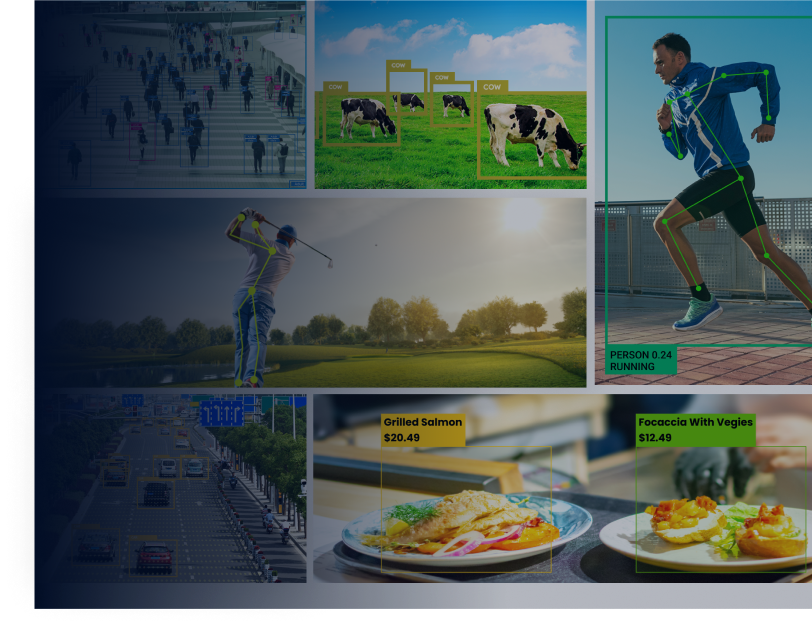Content has become incredibly important for communication, brand recognition, and engaging customers, as businesses need to connect with their audience effectively. Having good-quality content can do this, but quality is also needed. Therefore, content scaling operations are used to consistently deliver high-quality material, which boosts visibility and strengthens that connection.
In this context, generative AI emerges as a valuable tool for creating content, simplifying, and upgrading the productivity of the process. Now we don’t necessarily need a professional. For instance, a company can employ generative AI to produce an entire series of blog posts on a specific topic, ensuring that each post is not only informative but also tailored to meet the audience’s needs. Is it beneficial to know this? Read this blog as it aims to explore the concept of content scaling and the advantages of engaging generative AI, with each idea flowing seamlessly to promote better understanding.
Let’s start with the basics. So, what exactly is content scaling?
What Is Content Scaling?
Content scaling is about using automated tools like generative AI to create or copy content on a larger scale. On a large scale, this helps businesses generate more high-quality content quickly without losing relevance or accuracy. It also allows companies to meet the increasing need for fresh and engaging material across different channels while using their resources wisely.
The key to content scaling is balancing quantity and quality. With generative AI, businesses can produce many customized pieces that connect with their audience. Plus, this method boosts creativity by giving marketing teams more time to focus on strategy and new ideas instead of just creating content.
Using Generative AI to Scale Your Content Operations
To effectively use generative AI for content scaling, it’s important to first understand what generative AI is all about.
Generative AI is a type of artificial intelligence that creates new content using existing data. It combines natural language processing (NLP) and machine learning to analyze large amounts of information, enabling it to produce different types of content such as text, images, videos, and audio. This technology learns from data patterns and can mimic human behavior, which is especially useful for businesses that want to efficiently scale their content operations.
For example, a study showed that companies using generative AI can cut content creation costs by up to 30%. A great example of this is Netflix, which uses generative AI to personalize recommendations for users and even create promotional materials, helping to boost viewer engagement. By automating content creation, businesses save time and reduce labor costs while generating customized content on a larger scale.
Benefits of Using Generative AI for Content Creation
Some of the essential benefits of using generative AI for content creation are:
- Saves Time: Generative AI helps businesses create high-quality content much faster than human writers, allowing for quick content scaling without losing quality.
- Consistency: It keeps brand messaging and tone consistent across all content, giving the brand a recognizable voice.
- Personalization: Businesses can customize content to match the interests of different audiences, leading to better engagement and higher conversion rates.
- Cost-effective: Automating content creation reduces labor costs, allowing businesses to use their resources more efficiently.
- Continuous Improvement: Generative AI learns from past content, helping to make future content even better and more efficient over time.
Best Practices to Use Gen-AI for Content Scaling
Here are some best practices for using generative AI for content scaling.
- Understand your audience: Generative AI works best with clear instructions on the target audience and their preferences. Companies should deeply understand their audience’s needs, interests, and behaviors to generate relevant content that resonates with them.
- Create a content strategy: Despite automating the creation process, businesses still need a solid content strategy to guide generative AI in producing valuable material that aligns with the brand’s goals.
- Incorporate human input: While generative AI can produce high-quality content, it is essential to have a human element involved in the final review process. This ensures accuracy, relevance, and consistency before publishing the content.
- Use multiple data sources: To enhance the effectiveness of generative AI, businesses should use multiple data sources, including customer feedback, social media trends, and industry insights. This provides a more comprehensive understanding of the audience and their behavior, leading to better content creation.
- Monitor and adjust: As with any technology, it is crucial to continuously monitor generative AI’s performance and make necessary adjustments to achieve optimal results. This includes reviewing the generated content regularly to ensure it meets the brand’s standards and making changes as needed.
The Future of Generative AI for Content Creation and Content Scaling
As we see the benefits and impact of using generative AI for content scaling, it’s clear that this technology has a bright future.
It is booming in the business world, with companies like Google and Netflix leading the way. As technology progresses, this trend of content scaling using generative AI will only get bigger. We can expect to see more advanced generative AI tools that can produce a wider range of content types, including virtual reality and augmented reality. This will open up even more possibilities for businesses to engage with their audience and deliver personalized content at scale.
Summary
In short, using generative AI to scale content is changing how businesses create and share what they put out. By automating things, companies can whip up high-quality content fast, consistently, and without breaking the bank. So, if you want to stay ahead in the competitive marketing game, it’s time to think about adding generative AI to your content strategy. Embrace this technology to level up your content production and connect with your audience in a more meaningful way.
Frequently Asked Questions (FAQs):
What Are the Key Benefits of AI-Enhanced Content Generation?
The creation of content with AI enhancements has many advantages. First off, it vastly increases the effectiveness of content development, enabling companies to smoothly satisfy rising demand.
Second, AI-driven material keeps a high-quality standard through accuracy, relevance, and consistency. Thirdly, it makes it possible to tailor content, increasing user interest and sales. Finally, it simplifies the scaling of content for marketing campaigns.
Together, these benefits make AI-enhanced content generation a crucial tool in contemporary content development.
How Can I Ensure AI-Generated Content Aligns with My Brand?
Follow these steps to make sure AI-generated content reflects your brand:
- Establish clear and thorough brand rules that cover everything from messaging to tone and style.
- Fine-tune AI algorithms to reflect the tone and principles of your brand.
- To make sure AI-generated material complies with brand rules, human editors should examine and approve it.
- Compare AI-generated material to your brand guidelines and make any necessary improvements.
- To ensure ongoing AI provider improvement and brand identity alignment, keep the lines of communication open.
Are There Ethical Concerns with AI-Driven Content Creation?
Yes, ethical concerns arise in AI-driven content creation. Plagiarism risks, potential biases from biased training data, and the need for transparency regarding AI involvement all demand careful consideration to uphold ethical content creation standards.
Can AI Replace Human Creativity in Content Production?
Many aspects of content production can be automated by AI, but it cannot completely replace human creativity. While AI increases productivity, human creativity is still necessary to produce original, cutting-edge, and emotionally compelling material.
What Metrics Should I Use to Measure AI-Generated Content Success?
Consider measures like engagement rates, conversion rates, traffic growth, and user feedback to gauge how well AI-generated content is doing in relation to your content goals and objectives.

Dawood is a digital marketing pro and AI/ML enthusiast. His blogs on Folio3 AI are a blend of marketing and tech brilliance. Dawood’s knack for making AI engaging for users sets his content apart, offering a unique and insightful take on the dynamic intersection of marketing and cutting-edge technology.










